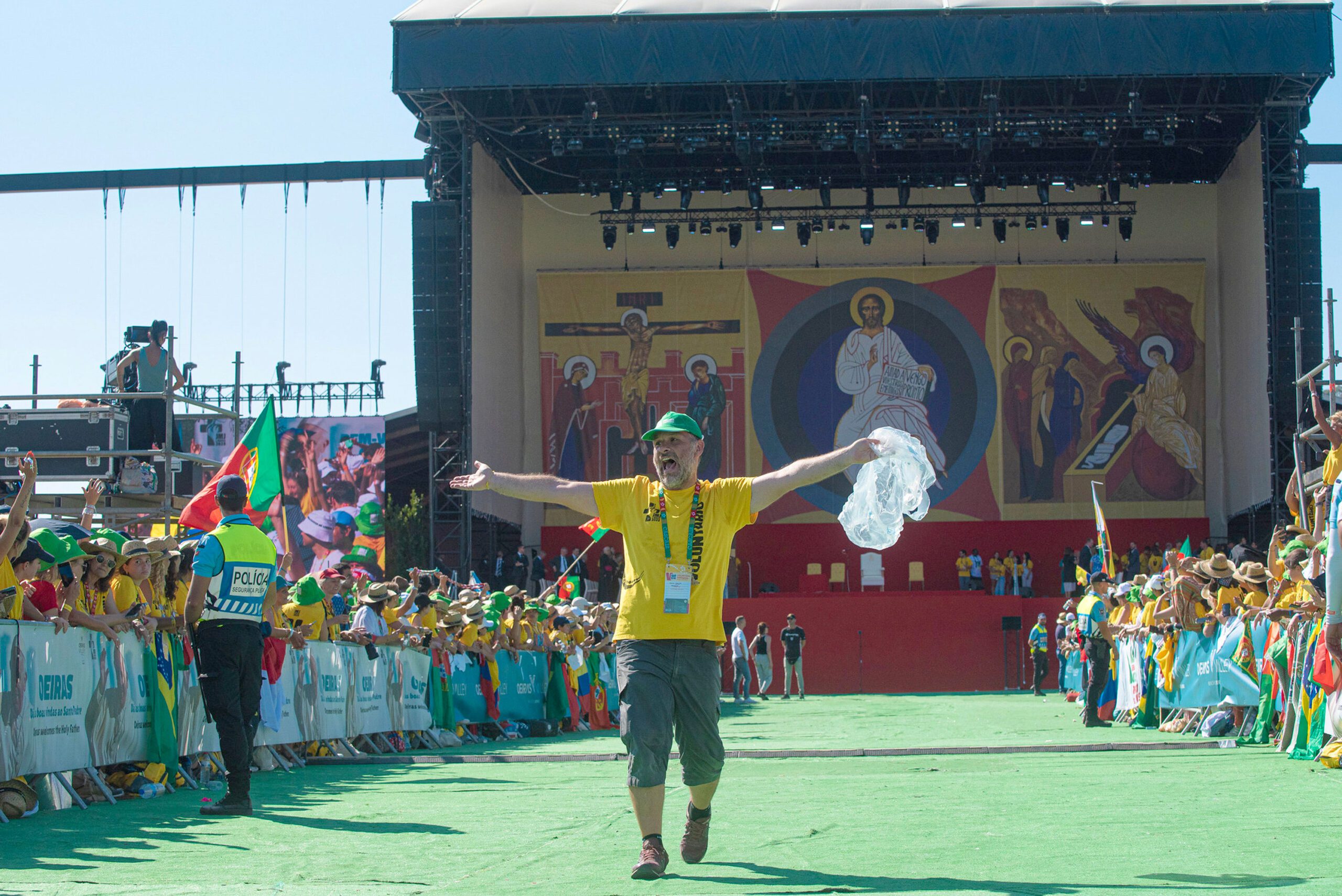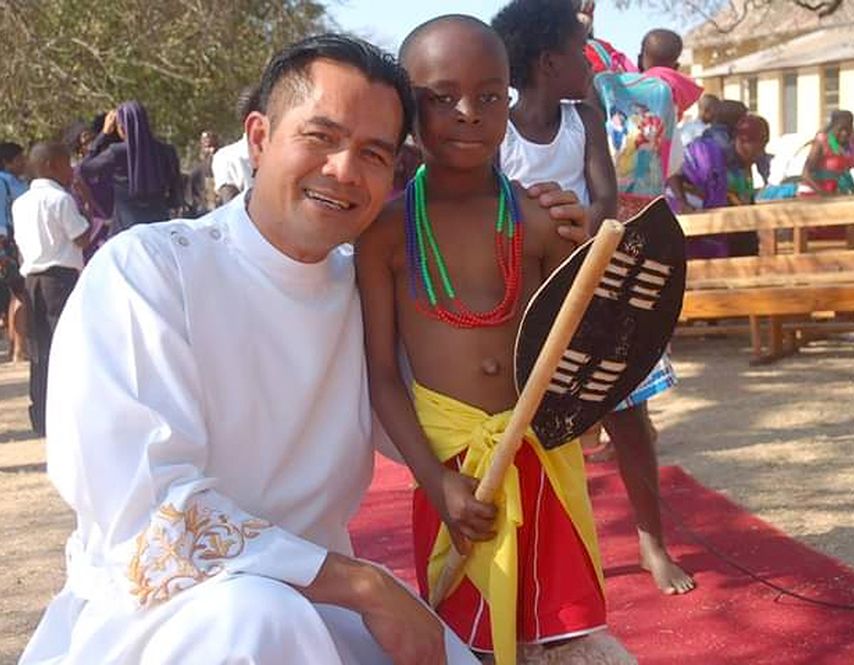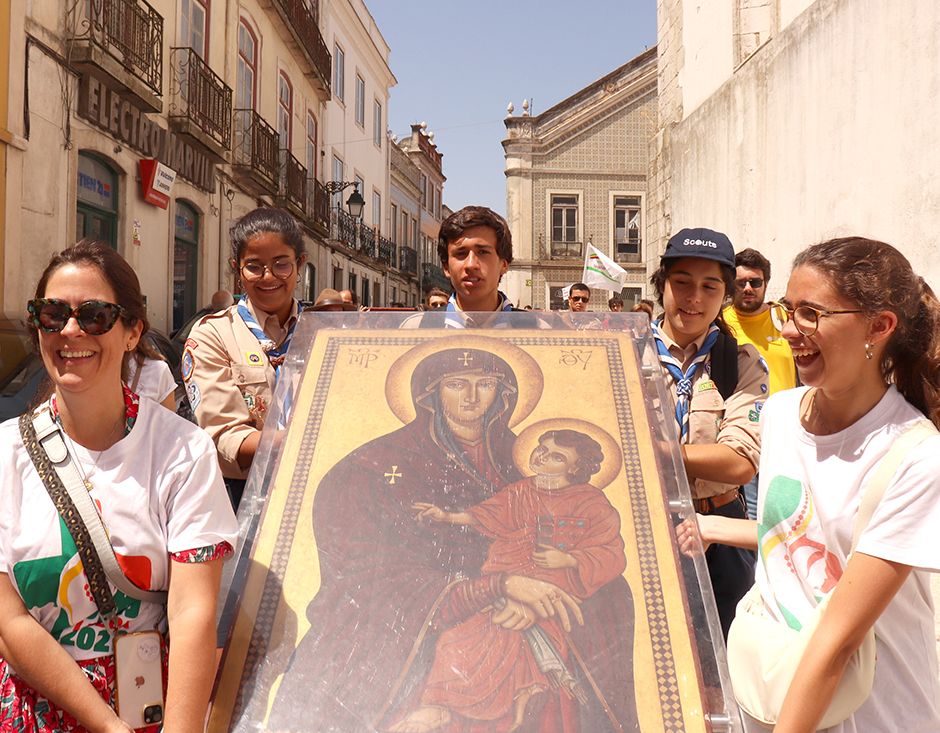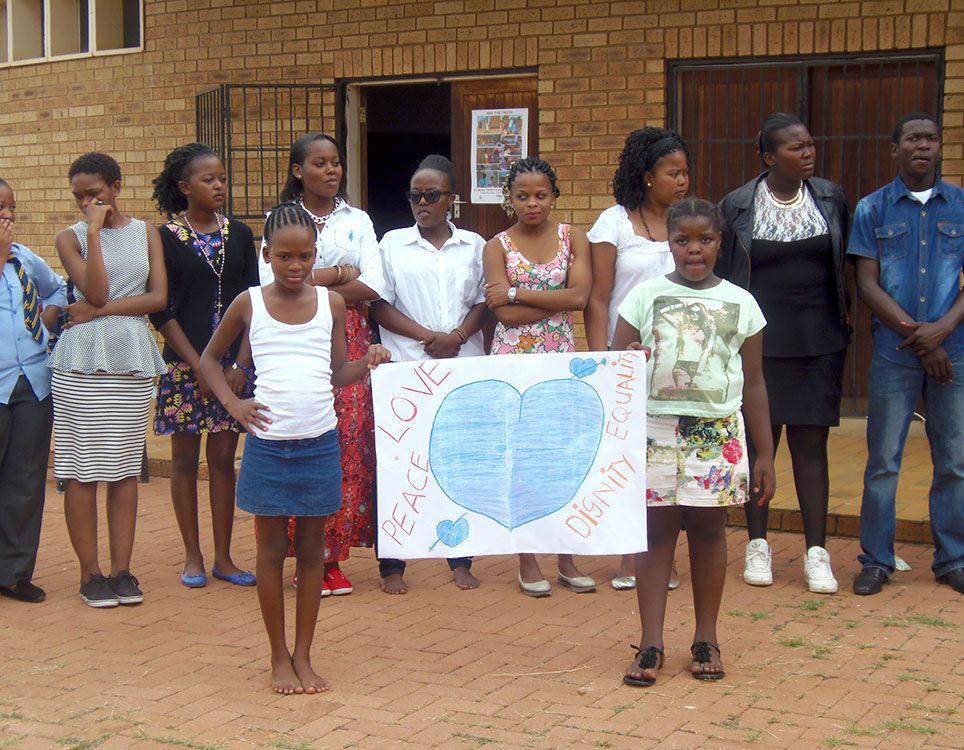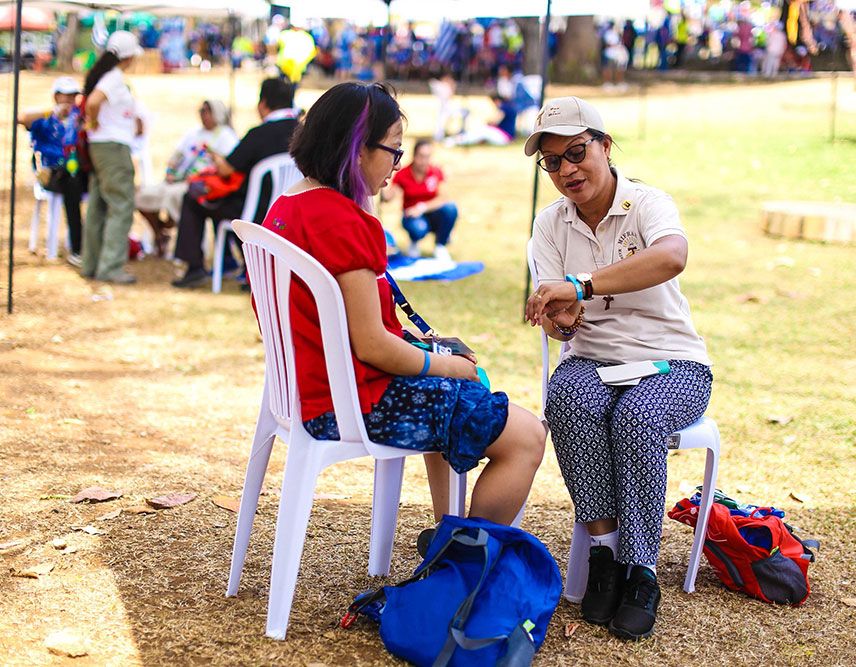There is a village at the gates of Jerusalem, on the eastern slope of the Mount of Olives, which still has a particular attraction to visitors. The Gospels register it with the name of Bethany, and Jesus took refuge there when He came from the North, from the tiresome journey of Galilee, or when He sought a place to spend the night after an intense day on the Temple Terrace, in discussion with Pharisees, Scribes, Sadducees, and religious authorities.
The house of Lazarus and his sisters, Martha and Mary, at Bethany, had become for Jesus a place of encounter, friendship and dialogue, in which He sought refuge. (We can read the reports of those encounters at Bethany in John 11: 1-56; 12: 1-11; Luke 10: 38-42; Mark 14: 3-9 and Matthew 26: 6-13).
In Bethany, at the time of Jesus, and elsewhere around the city of Jerusalem, various groups of people had sought refuge, drawn by the desire to purify the official religion and temple ritual. People and groups moved away from the noise of the city to cultivate a living sense of the messianic hope. Lazarus and his sisters, in all likelihood, also gravitated towards this movement of people in search of a more authentic religion, of transformation, of an openness of society to the sovereignty of God (to the Kingdom of God) which, in the Jewish concept of the time, was about to manifest itself.
Sadness in joy
It is precisely at Bethany that Jesus performs one of the great signs of this sovereignty of God, of this expected kingdom: He raised to life His friend Lazarus, making him return to the conviviality and friendship of his own. Lazarus’ illness and his death, the encounter with his sisters, all have a strong impact on Jesus: they bring Him to tears, they lead Him to a deep experience of prayer and communion with God. And they make Him shout, giving divine voice to the human condition, in a word of creative force: “Lazarus, come out!” Come back to life!
And Lazarus returns to this space of encounter and communion that is his home. This is a great sign of the sovereignty of God that Jesus accomplishes, because to operate this return, only possible to God, and to preserve this space of encounter and friendship, in the midst of pain and suffering, is a divine gift. This sign, however, also marks the fate of Jesus: by bringing Lazarus back to life, Jesus signs His own condemnation to death. The evangelist John says that from that moment on, the chiefs assembled the Sanhedrin and decided to eliminate Jesus.
Perfume of life
The same evangelist refers another encounter with Jesus in the house of Lazarus (John 12, 1-8), a place where the encounter makes the gratuitous love that is the perfume of life grow. The encounter takes place six days before the Passover of Jesus, as a sign and anticipation of it.
During the supper offered to Jesus and the guests, Mary anoints the feet of Jesus with the oil made from genuine aromatic nard; the whole house is filled with the fragrance of this ointment, for the joy that is the perfume of human relations. The perfume spreads from Jesus to all the diners, anticipating the joy of the Sabbath day, the satisfaction of being at the table with God at the final Passover.
The evangelist not only records this note of fullness, but also the atmosphere of this encounter of Mary with Jesus marked by the perfume of love, which fills the house and her life. And he also records the reaction of selfishness and calculating interest, present in the words of Judas: “Why this waste? Why not sell the perfume to help the poor?”
Judas’ reaction represents a utilitarian love (prostituted, because guided by dynamism of exchange), a love that, instead of bringing joy to life, to radiate perfume, spreads the smell of sadness and a shrewd solitude. “You always have the poor with you, but you do not always have Me”, is the response of Jesus, who recognizes the beauty of Mary’s gesture and her love.
Essential in the encounter
In contemplating this scene of hospitality offered to Jesus, our attention goes to the two sisters. Martha is the protagonist, serves and establishes the rules of conviviality. Mary, unexpectedly, breaks these rules and surprises the guests by placing herself at Jesus’ feet, anointing them. She realizes that the essential thing, in that moment and in that encounter, is the presence of Jesus.
Jewish tradition reserved to women two important functions in the daily celebration of life. On Friday night’s liturgy, to welcome the Sabbath, it was the woman who lit the candlelight. The gesture signified the woman’s vocation: to bring home, to bring to family life, the light of the first day of creation, the gift of life. Women had as their own vocation to bring to family life the (lost) perfumes of paradise, the perfume of goodness, beauty and sanctity of life.
Martha and Mary appear here incarnating this twofold vocation of the woman: Martha guides the service in a supper of paschal tones, ignites the light of the candles, in a gesture that puts God as the origin of the goods that fill the table; Mary brings to the house the perfumes of paradise, the joy of conviviality where God, in the person of Jesus, is at the center.
Become a disciple
The other scene to contemplate in these encounters at Bethany is described to us by Luke (10: 38-42). Jesus, the Good Samaritan on the road to Jerusalem with His disciples, is welcomed by Martha and Mary. Martha organizes the service and Mary, instead of offering herself to help, will sit at Jesus’ feet to listen to His Word.
Mary’s attitude is not usual for a woman. Sitting at the master’s feet listening to His Word was what men did, the students in the schools where the Law was studied. And at the time of Jesus, a teacher of the Jewish Law taught that “‘the words of Torah should burn rather than be taught to women”.
Mary, in this scene at Bethany, places herself against accepted tradition, bound as she is to the words of Jesus: she becomes a disciple at the Master’s feet.
Martha, for her part, has a socially established function: she organizes the reception to Jesus and resents the attitude of her sister, who leaves her alone in the service. If she was surprised by her sister’s attitude, the more surprised she is by the response of Jesus: “Martha, Martha, you are anxious and worried about many things. There is need of only one thing. Mary has chosen the better part and it will not be taken from her.”
In the encounters at Bethany, Jesus is received by the two sisters. Martha welcomes Him, serving; Mary receives Him, listening to His Word. The house of Martha is also Mary’s house, where Jesus is received. Jesus’ presence for one is work and fatigue, for the other love and joy. Martha and Mary, however, are sisters and inhabit the same house. They are not strangers or opposites.












